Can forged bevel gears be used in construction equipment applications?
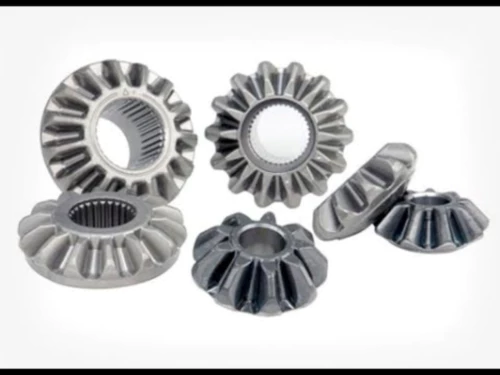
Advantages of Forged Bevel Gears
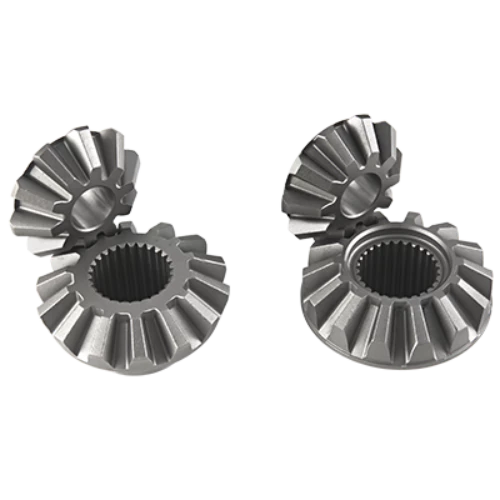
1. High Strength
Forged bevel gears possess exceptional strength due to the forging process, making them suitable for heavy-duty applications.
2. Improved Fatigue Resistance
The forging process enhances the fatigue resistance of bevel gears, ensuring their durability and longevity in demanding conditions.
3. Precise Gear Tooth Geometry
The forging process allows for precise control over the gear tooth geometry, resulting in better gear meshing and smoother operation.
4. Cost-Effectiveness
Forged bevel gears offer a cost-effective solution, as the forging process allows for efficient production and material utilization.
5. Versatility in Material Selection
Forging allows for the use of various materials, enabling bevel gears to be tailored to specific application requirements.
6. Enhanced Structural Integrity
The forging process improves the structural integrity of bevel gears, making them resistant to deformation and failure under load.
7. Tailored Mechanical Properties
Forging enables the customization of mechanical properties, such as hardness and toughness, to meet specific performance needs.
8. Reduced Lead Time
The forging process offers shorter lead times compared to other manufacturing methods, ensuring quick availability of bevel gears.
9. Environmental Sustainability
Forging is a sustainable manufacturing process that minimizes waste and energy consumption, contributing to a greener environment.
Working Principles of Forged Bevel Gears
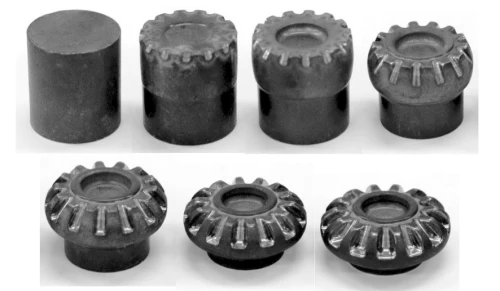
Forging bevel gears operate based on the fundamental principles of gear mechanisms. They consist of two intersecting shafts, each with a conically shaped gear (bevel gear) mounted on it. The teeth of the bevel gears are designed to have a specific tooth profile, such as straight, spiral, or hypoid, depending on the application requirements.
When the input shaft rotates, the engagement of the teeth of the bevel gears causes a transfer of rotational motion and torque to the output shaft. The contact between the mating teeth ensures power transmission while maintaining proper alignment and smooth operation.
Applications of Forged Bevel Gears
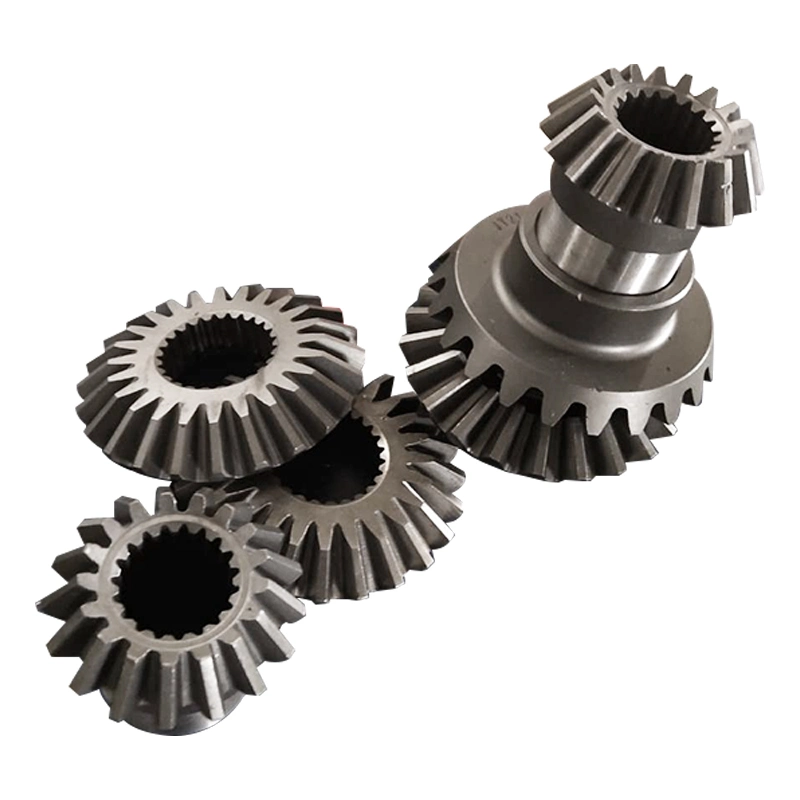
1. Automotive Industry
Forged bevel gears find applications in various automotive systems, including transmissions and differential drives, ensuring reliable power transmission.
2. Industrial Machinery
In industrial machinery, forged bevel gears are used in gearboxes, power transmission systems, and other critical components, providing efficient and precise motion control.
3. Aerospace and Defense
Forged bevel gears are vital for aerospace and defense applications, where precision, strength, and reliability are paramount, such as in aircraft landing gear systems and military vehicles.
4. Renewable Energy
Forged bevel gears are employed in wind turbines and other renewable energy systems to convert rotational motion into usable energy, ensuring efficient power generation.
5. Marine and Shipbuilding
Forged bevel gears are crucial for marine and shipbuilding applications, including propulsion systems, steering mechanisms, and anchor handling equipment, ensuring smooth and reliable operation at sea.
6. Agricultural Machinery
In agricultural machinery, forged bevel gears are used in transmissions, power take-offs, and other gear-driven systems, providing reliable performance in demanding farming operations.
7. Power Generation
Forged bevel gears play a vital role in power generation applications, such as in hydroelectric turbines and steam turbines, ensuring efficient energy conversion.
8. Robotics and Automation
In robotics and automation, forged bevel gears are utilized in various robotic joints, gearboxes, and motion control systems, enabling precise and reliable movement.
Installation and Maintenance of Forged Bevel Gears
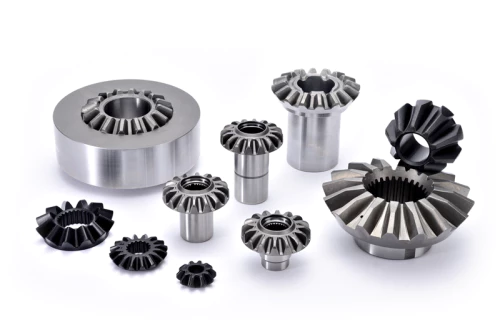
Installation:
1. Proper Alignment
Ensure proper alignment of the bevel gears during installation to minimize misalignment-related issues and ensure smooth operation.
2. Lubrication
Apply appropriate lubrication to the bevel gears to reduce friction, prevent wear, and optimize their performance and lifespan.
3. Mounting Bolts
Securely tighten the mounting bolts to ensure the bevel gears are properly fixed in place, preventing unintended movement or dislocation.
4. Inspection
Thoroughly inspect the bevel gears and their components before installation to identify any defects or abnormalities that may compromise their performance or safety.
Maintenance:
1. Lubrication
Regularly lubricate the bevel gears as per the manufacturer's recommendations to maintain optimal performance and prevent premature wear.
2. Cleaning
Periodically clean the bevel gears to remove any debris, dirt, or contaminants that may affect their operation or cause damage.
3. Inspection
Regularly inspect the bevel gears for signs of wear, damage, or misalignment, and take appropriate action if any issues are detected.
4. Replacements
If any bevel gears or their components show significant wear or damage, replace them promptly to avoid further issues and ensure proper functioning.
5. Gearbox Maintenance
If the bevel gears are part of a larger gearbox system, follow the manufacturer's guidelines for overall gearbox maintenance to ensure optimum performance.
6. Load Monitoring
Monitor the load and operating conditions of the bevel gears to ensure they are within their design limits and prevent overloading or premature failure.
7. Training and Expertise
Ensure that personnel responsible for the maintenance of bevel gears have the necessary training and expertise to perform their tasks effectively and safely.
8. Record-Keeping
Maintain accurate records of maintenance activities, including lubrication schedules, inspections, and replacements, to track the performance and history of the bevel gears.
How to Select Suitable Forged Bevel Gears
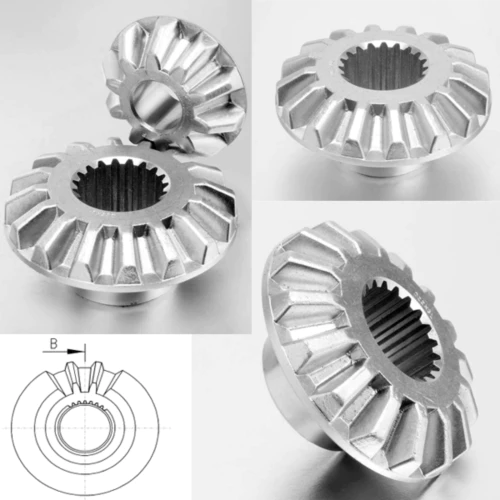
1. Application Requirements
Consider the specific requirements of the application, including load capacity, speed, torque, and environmental conditions, to select bevel gears that can meet these demands.
2. Design and Specifications
Review the design and specifications of the bevel gears, including tooth profile, module, pitch diameter, and backlash, to ensure compatibility with the intended application and other system components.
3. Material Selection
Choose the appropriate material for the bevel gears based on factors such as strength, wear resistance, corrosion resistance, and compatibility with lubricants and operating conditions.
4. Quality and Reliability
Ensure that the bevel gears are manufactured to high-quality standards and meet relevant industry certifications or standards to guarantee their reliability and performance.
5. Load-Carrying Capacity
Evaluate the load-carrying capacity of the bevel gears, considering factors such as gear tooth strength, contact ratio, and the ability to withstand shock and impact loads.
6. Efficiency and Performance
Assess the efficiency and performance characteristics of the bevel gears, including gear ratios, transmission efficiency, noise levels, and smoothness of operation.
7. Customization and Adaptability
Consider the availability of customization options and the adaptability of the bevel gears to different applications or modifications, allowing for greater versatility and flexibility.
8. Cost Considerations
Take into account the overall cost of the bevel gears, including initial purchase cost, maintenance, and potential downtime costs, to ensure a cost-effective solution without compromising quality and performance.
Introduction to Shaoxing Chaoli Company
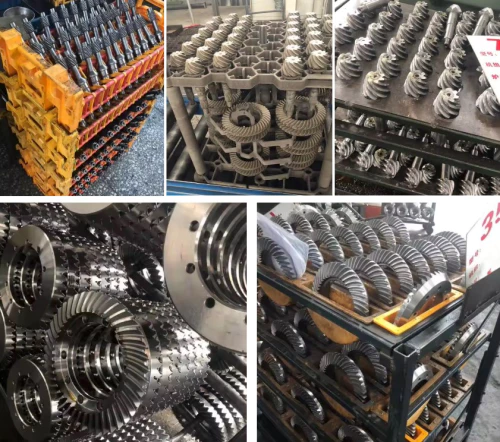
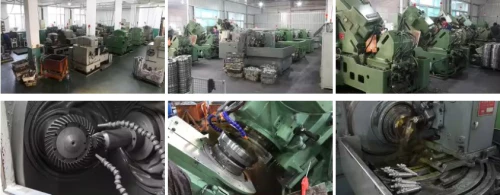
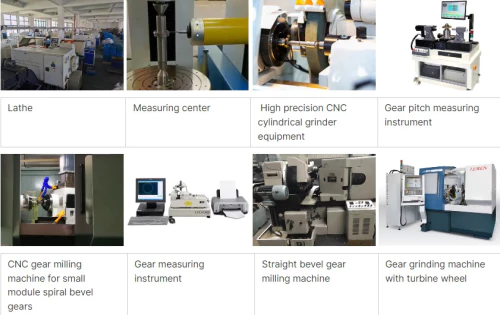
Shaoxing Chaoli is a professional manufacturer of gears in China. We export our products to countries such as Spain, the Netherlands, the United States, South Korea, Turkey, and Russia. We are dedicated to helping customers develop new products and solving technical and quality problems. Our commitment is to meet the needs of users with high-quality products, fair prices, and perfect services.
In short, we adhere to the principles of quality first, timely delivery, and credit first. We sincerely treat every business partner and wholeheartedly welcome friends from the business community to cooperate with us, develop together, and create brilliance.
Shaoxing Chaoli also offers other gear products, including Worm Gear, Spiral Bevel Gear, Helical Gear, Spur Gear, Plastic Gear, and Metric Gear Rack. Customers are welcome to inquire about customized products.
Shaoxing Chaoli is a professional manufacturer of gears in China. Its products are mainly sold to hundreds of fixed suppliers such as domestic steel rolling mills, shipyards, precision machine tool factories, automation machinery factories, and various distribution companies. We export our products to Western Europe, the Middle East, Southeast Asia, and other countries and regions.
Currently, Shaoxing Chaoli has hundreds of employees, including many engineers, with fixed assets of 20 million yuan and an annual output value of 50 million yuan. We have a complete set of strict quality management systems and are equipped with a series of precision measuring instruments such as optical projectors and 16 full-process production monitoring systems. Shaoxing Chaoli has considerable competitiveness in the same industry.